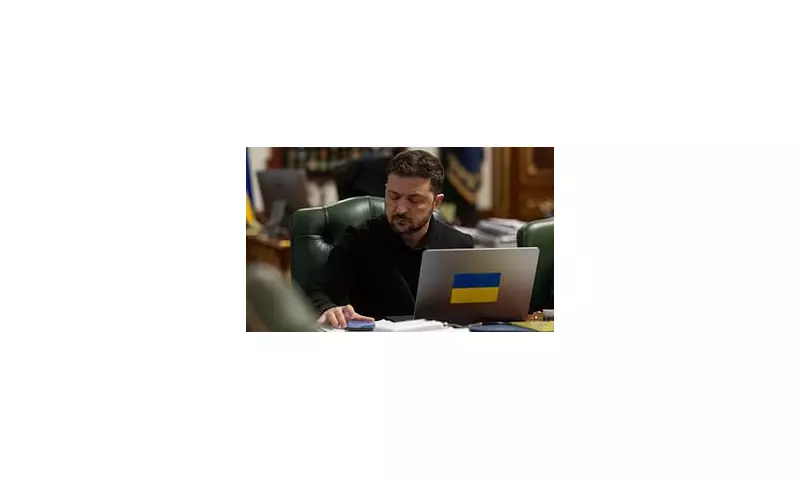
Ukrainian President Volodymyr Zelensky has extended his appreciation to Donald Trump following the US President's proposed peace plan to end the ongoing conflict with Russia, even as the European Union presented a counter-proposal with significant differences.
Diplomatic Moves in Geneva
Following crucial talks in Geneva on Sunday between Ukrainian and American delegations, President Zelensky took to social media platform X to express his gratitude towards nations working towards peace in his war-torn country. The Ukrainian leader specifically thanked the United States and President Trump personally for their assistance, while also acknowledging support from European partners and G20 nations.
However, Zelensky emphasised that the primary objective remains stopping Russia's aggression and preventing future conflicts. 'It is important not to forget the main goal – to stop Russia's war and prevent it from ever igniting again,' he stated, adding that 'peace must be dignified.'
Contrasting Peace Proposals
The diplomatic landscape has become increasingly complex with the emergence of two distinct peace plans. The United States' 28-point proposal, drafted by special envoy Steve Witkoff alongside Russian envoy Kirill Dmitriev, has drawn criticism for appearing favourable to Moscow.
Key elements of the Trump administration's plan include:
- Capping Ukraine's military at 600,000 personnel
- Handing over the strategic Donbas region to Russia
- Barring NATO troops from Ukrainian soil
- Providing sweeping sanctions relief to Moscow
- Establishing US-Russia joint ventures in mining and artificial intelligence
In stark contrast, the European proposal drafted by Britain, France and Germany presents a markedly different approach:
- No restrictions on the size of Ukrainian Armed Forces
- No ban on Ukraine joining NATO
- Kyiv would not be forced into neutrality
- Immediate unconditional ceasefire freezing current front lines
- Robust security guarantees for Ukraine including US protection similar to NATO's Article 5
Political Reactions and Tensions
The diplomatic efforts have sparked strong reactions across the political spectrum. President Trump launched a surprising criticism of Ukrainian leadership on his Truth Social platform, accusing them of showing 'zero gratitude' for American efforts. The US President described the conflict as 'a loser for everyone' and claimed he had inherited a war that should never have happened.
Meanwhile, US Secretary of State Marco Rubio described the Geneva meetings as 'probably the most productive and meaningful meeting so far in this entire process.' He confirmed that the administration was working through suggestions and making adjustments to reach a solution acceptable to both Ukraine and the United States.
European leaders have been cautiously supportive while emphasising their concerns. European Commission President Ursula von der Leyen warned that Ukraine's borders cannot be changed by force and that there should be no limitations on Ukraine's armed forces that would leave the country vulnerable to future attacks.
British Prime Minister Keir Starmer, who held discussions with President Trump about the peace deal, voiced particular concern about proposed military caps. 'We are concerned about caps on military, because it's fundamental that Ukraine has to be able to defend itself if there's a ceasefire,' Starmer stated from the G20 summit in Johannesburg.
The diplomatic efforts continue as Ukraine faces ongoing military challenges, with recent successful drone strikes causing power disruptions in Moscow for the first time, signalling Kyiv's ability to project force deep into Russian territory.





